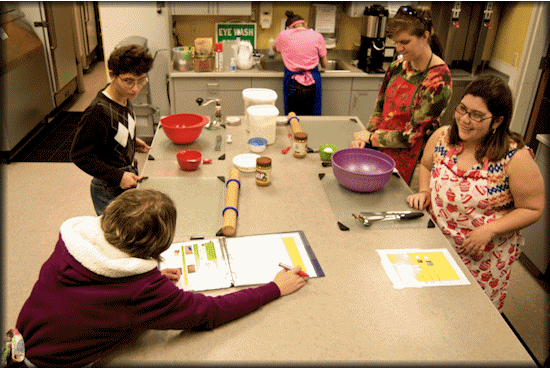Get Creative Ideas for Writing: Unlock Your PotentialEmbarking on a journey of creative writing can often feel daunting, especially when you're staring at a blank page, unsure of where to start. The key to overcoming this hurdle lies in finding and nurturing creative ideas for writing. Whether you're a seasoned writer or just starting, this guide will provide you with practical tips and strategies to get your creative juices flowing. From understanding the essence of good writing to utilizing writing prompts effectively, we'll explore various facets to help you become a more confident and skilled writer. Understanding the Basics of Creative WritingCreative writing is not just about stringing words together; it's an art form that requires imagination, skill, and a deep understanding of the craft. To get creative ideas for writing, you first need to grasp the basics. This includes understanding different writing styles, narrative techniques, and character development. Reading extensively and analyzing various forms of literature can significantly enhance your writing skills. Remember, every great writer is also an avid reader. By immersing yourself in different genres, you'll start to recognize patterns and styles that resonate with you, which can be incredibly inspiring. Overcoming Writer's Block and Getting Ideas for Creative EssaysWriter's block is a common challenge that can hinder your creative process. However, there are several strategies to overcome this obstacle. One effective method is to engage in free writing exercises. Set aside time each day to write without any constraints or specific goals. This practice helps in loosening up your creative muscles and can lead to surprising and innovative ideas. Additionally, exploring personal experiences and emotions can be a rich source of inspiration for creative essays. Reflect on moments that have impacted you and consider how they could be woven into compelling narratives. Utilizing Writing Prompts to Spark CreativityWriting prompts are a fantastic tool for generating creative ideas. They can provide a starting point from which your imagination can take flight. Whether it's a single word, a phrase, or a scenario, prompts can help break the initial inertia and get your creative process moving. Don't hesitate to experiment with different types of prompts to see what works best for you. The key is to let your imagination run wild and not be overly critical in the initial stages of writing. Remember, the first draft is about getting your ideas down; refinement comes later. Seeking Inspiration from the World Around YouInspiration for creative writing can come from anywhere – the people you meet, the places you visit, or even everyday experiences. Keep a notebook or a digital app handy to jot down ideas as they come to you. Observing the world with a writer's eye can turn mundane experiences into fascinating stories. Pay attention to conversations, settings, and even fleeting emotions. These snippets of life can often be the spark that ignites a compelling story or a vivid character. Developing Your Unique Voice and StyleOne of the most crucial aspects of good writing is developing a unique voice and style. This comes with practice and experimentation. Don't be afraid to try out different writing styles or to imitate writers you admire. Over time, you'll find your own rhythm and voice that resonates with your personality and experiences. Remember, what makes your writing stand out is its authenticity and the unique perspective you bring to it. Joining Writing Groups and Workshops for FeedbackJoining writing groups or workshops can be immensely beneficial in honing your writing skills. These platforms offer opportunities to share your work, receive constructive feedback, and learn from others. Engaging with a community of writers can also be motivating and inspiring. You'll be exposed to different writing styles, ideas, and critiques, all of which can contribute to your growth as a writer. Exploring Different Genres and ThemesDon't limit yourself to a single genre or theme. Exploring a variety of genres can help you discover what truly excites you as a writer. Each genre has its own conventions and challenges, which can be a great learning experience. Whether it's romance, science fiction, mystery, or non-fiction, dabbling in different genres can broaden your creative horizons and enhance your versatility as a writer. Using Technology and Tools to Enhance WritingIn today's digital age, numerous tools and software are available to assist writers. From word processors with advanced editing features to apps designed for organizing ideas and research, technology can be a valuable ally in your writing journey. Additionally, online platforms offer a wealth of resources, including writing courses, tutorials, and forums where you can connect with other writers. Incorporating Feedback into Your Writing ProcessFeedback is an essential part of the writing process. It provides insights into how your work is perceived by others and highlights areas that may need improvement. Be open to constructive criticism and use it as a tool to refine your writing. However, it's also important to stay true to your vision and not lose your voice in the process of incorporating feedback. Setting Realistic Goals and DeadlinesSetting goals and deadlines can help keep you motivated and focused. Whether it's completing a certain number of words each day or finishing a draft by a specific date, having clear targets can provide a sense of direction and purpose. However, be realistic in your expectations and allow yourself flexibility. Writing is a creative process, and sometimes it takes longer than anticipated. Embracing the Editing and Revision ProcessEditing and revising are critical steps in the writing process. It's where you refine your ideas, sharpen your language, and polish your work. Don't rush this stage. Take the time to carefully review and revise your writing. Pay attention to aspects like structure, coherence, grammar, and style. A well-edited piece not only reads better but also demonstrates your professionalism and dedication as a writer. Finding Balance Between Creativity and DisciplineWhile creativity is at the heart of writing, discipline is what brings it to fruition. Balancing the two is key to a successful writing practice. Set aside dedicated time for writing, but also allow yourself the freedom to explore and experiment. Discipline helps in maintaining consistency, while creativity brings joy and innovation to your writing. Dos and Don'ts of Creative WritingDo: Read widely and diversely to fuel your imagination. FAQsHow do I start writing if I have no ideas?Begin with free writing exercises or use writing prompts to spark ideas. Don't worry about the quality or coherence at this stage; just focus on getting words on the page. What should I do if I feel stuck in my writing?Take a break and engage in a different activity. Sometimes stepping away can provide a fresh perspective. Also, try discussing your work with others for new insights. How important is grammar and style in creative writing?While creative writing offers more flexibility, good grammar and a coherent style are important for clarity and readability. However, don't let fear of making mistakes stop you from writing. Editing and revising can always be done later. Can I make a career out of creative writing?Yes, many people have successful careers as novelists, screenwriters, poets, and content creators. It takes dedication, skill, and sometimes a bit of luck. Final ThoughtsCreative writing is a rewarding and fulfilling endeavor that allows you to express yourself and share your perspective with the world. Remember, every writer has a unique voice and something valuable to share. The key to success lies in practice, perseverance, and a willingness to learn and grow. Embrace the journey with an open mind, and don't be afraid to let your creativity shine. Happy writing! Useful Resources:https://www.thepeachkitchen.com/2023/11/easy-recipes-for-college-students-11-simple-meals-to-help-you-save-time-and-money/ |
 |
|
|
Hearts 'n' Hands Work Enrichment
|
Modified Training & Education Collaborative Team Work Empowering Independence Cultivating Community Connections |
